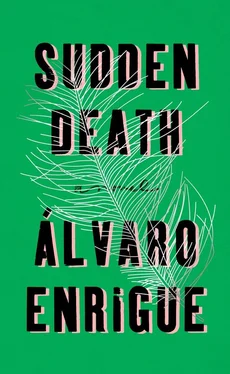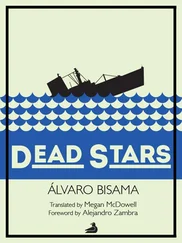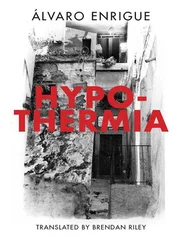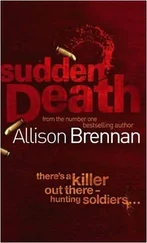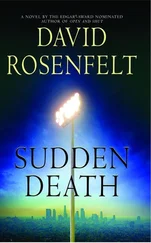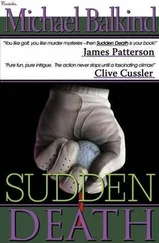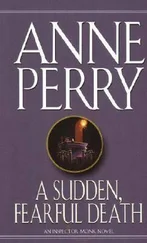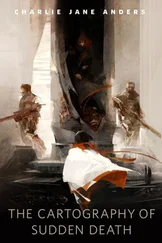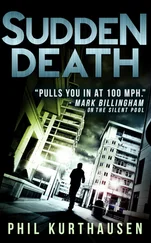After the Spaniard’s second serve, the Lombard stopped trying to make the game fun. The poet lost heart when the artist brilliantly blocked a return, smiling from ear to ear, raising his racket with disdain, and letting the ball simply bounce off it and drop. The poet didn’t even try to go after it, chastened by the cackles with which the beggars and tarts had crowned his effort at the end of the last point. The artist grabbed his testicles with his left hand and blew the poet a kiss.
The night before, after three boring cups of grappa, and the professor and the capotavola both resisting conversation, the poet had made as if to rise. Then he’d felt a steely hand on his thigh: the captain of the drunkards smiled at him with genuine innocence, blew his hair out of his eyes, and said in Italian: Excuse me, but someone has to control these savages or they’ll end up wrecking the place. The poet offered his hand and the artist took it between his, giving it a manly squeeze. They’re my friends, he said; awful, every one of them, but you won’t find better; what are you doing in Rome? Not much, the poet answered in his rather academic Italian; visiting the holy places, letting things cool off at home. Ah, the capo replied with a sinister and irresistible gleam in his eye; you’re fleeing because you’ve committed some atrocity against King Philip. More or less.
In the gallery there was a volcanic rumble: upset by the artist’s crotch-grabbing and kiss, the duke’s mercenaries all drew their swords and would have stormed the court and put an end to the painter’s career forever if their master hadn’t halted them with a sign. The Italians in the stands pulled their daggers from their breeches and crowded behind the mathematician, who spread his arms to hold them back without taking his eyes off the duke. The Spaniards didn’t resume their charge, but nor did they sheathe their swords. The poet dropped his racket, and the artist had time to wonder whether he was simply stunned by the sudden outbreak of violence or whether he wanted his right hand free to run to the gallery for his sword. He calculated that he could defend himself with his racket until he reached his own weapon, which the professor didn’t dare pick up from the ground but was nudging with the toe of his boot. For an instant, not a bird flew over Rome.
Under other circumstances the poet would have explained to the capotavola that being fugitives from justice didn’t necessarily make them allies of the king of France, but with his tongue thickened by grappa, he could never have articulated it in Italian, nor was he capable by that point of rational thought. And there was something fascinating about the man who filled his cup again without letting go of his leg, in a gesture that spoke more of generosity than courtesy, because he was as rough as a brick.
The duke cried: Love — thirty, and returned to his seat. The poet took this to mean that he should keep playing, and he picked up his racket from the ground, going to retrieve the ball amid the deadly silence of the men in the gallery, who were watching him with hilts in their hands. He headed to the baseline.
Tenez! he shouted, but he waited to toss the ball into the air, giving the artist time to return to his position. He served. They knocked the ball back and forth until blades were returned to sheaths and the spectators were in their seats again. The poet felt as if his side had won this hand and they had the moral advantage after the way the duke had quieted his men. When he saw that everyone was absorbed in the match again, he attacked a high ball with abandon and drove it into the very corner of the baseline. Even the artist acknowledged with a nod that it had been a perfect stroke. Quindici — trenta, cried the professor in a display of courtesy to match the duke’s peacemaking spirit.
Past a certain point, the occurrences of the previous night were not entirely clear in the poet’s mind, though he was still too young to forget them entirely — alcohol-induced amnesia is a blessing decanted gradually with age. He had probably been embroiled in some foolish conversation with the capo that both found utterly gripping. He hadn’t the faintest idea what they had talked about, but they had laughed, each gripping the other’s shoulder every so often to explain something crucial, forehead to forehead, weeping tears of mirth.
The game is yours, the duke said when the poet went to retrieve the ball to serve again. He was taking his place behind the line, spinning the ball in his hand, when he saw his linesman order Barral to go up and place a bet, to bring things entirely back to normal. He lowered his racket, wiped his forehead. New bets. Tenez! The artist put up a serious fight, but he lost the point. Tie, shouted the duke.
The Spaniard was a clever and rapid-fire talker when sober; drunk, his biting commentary took on a brilliant histrionic spin: he imitated voices, pulled faces, could draw out barbs of unimaginable cruelty in a joke. The capo wasn’t as loquacious, he was almost serious, but his way of railing against anything he didn’t like, which was almost everything, was unexpectedly charming. He threw his hands up, flung back his head, and flicked the hair from his face with the arrogance of a master of Rome. There was something hypnotic about his voice, though it issued from lips too sharply drawn.
The betting went up. The poet served forcefully, then returned the artist’s volley so hard that the strings of his racket almost broke. The ball was unreachable where it bounced. Punto di cacce, cried the professor.
He remembered laughing so hard it hurt, arms around the shoulders of his new best friend, as Italians and Spaniards tried to sing songs in unison that should definitely have been sung on their own. He remembered himself listening as intently as a child to stories that the Lombard whispered in his ear: his hot breath, the tickle of his patchy beard on his cheeks. There was always plenty of grappa.
Then he had felt the urge to piss, and stood up. Having lost the ability to get words out, he clapped the capo on the back to indicate that he would return. The capo turned to look at him. Come back soon, he said. The poet bent down and kissed him on the crown of the head. A brotherly kiss between drunks who’ve been having a wonderful time together. The smell of the Lombard’s mass of oily hair transported him to a world in which it was perfectly possible to live without fear of persecution by King Philip’s bailiffs; a world of men who risked everything and waited for death with teeth bared; a whole world in which each thing had a corresponding other.
Though the artist seemed wholly focused on chasing the ball, the poet never failed to respond with solvency and clarity. A slip by the Lombard on a low stroke brought victory to the poet. Game to Spain, cried the duke, with vehemence.
Wait, said the capo ; I have to piss too.

By 1530, when Vasco de Quiroga arrived in New Spain, Tenochtitlan had been pacified. It was a city whose official language was still Nahuatl and where no one stopped to wonder anymore whether this thing with the Spaniards would be a temporary occupation or they were here to stay: yet another tribe that would govern until expelled by the next one.
The rest of infinite America still had no inkling that over the next two hundred years, dozens of thousand-year-old cultures that had flourished in isolation, without contamination or means of defense, would inexorably be trashed. Not that it matters: nothing matters. Species are extinguished, children leave home, friends turn up with impossible girlfriends, cultures disappear, languages are one day no longer spoken; those who survive convince themselves that they were the most fit.
Читать дальше
